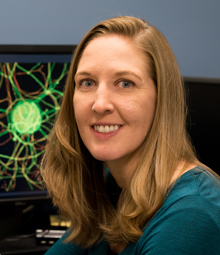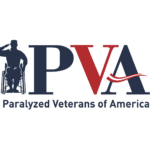- Home
- Research Resources
- Research Foundation
- research foundation grant recipients 2020
About the Grants
Paralyzed Veterans of America’s Research Foundation (a 501 (c) (3) nonprofit) funds scientists who conduct research to improve the lives of veterans and others living with spinal cord injury and disorders (SCI/D) and diseases like multiple sclerosis (MS) and amyotrophic lateral sclerosis (ALS).
Every year, more than 12,000 people in the United States sustain a spinal cord injury. PVA supports innovative research and fellowships that address the significant problems that impact the lives of these individuals, their caregivers, and health care partners. Our goal is to help individuals with SCI/D live longer, with a better quality of life.
The Foundation is proud to announce its grant recipients for a two-year period beginning on January 1, 2020.
Chosen from 79 applications nationwide, the PVA Research Foundation awarded six grants totaling $796,402 in three categories:
- Basic Science - laboratory research in the basic sciences to find a cure for SCI/D
- Clinical Applications - clinical and functional studies of the medical, psychosocial and economic effects of SCI/D, and interventions to alleviate these effects
- Design and Development - of assistive technology for people with SCI/D, which includes improving the identification, selection and utilization of these devices
- Fellowships - for postdoctoral scientists, clinicians and engineers to encourage training and specialization in the field of spinal cord research
2020 Grant Recipients

Dr. Warren Grill, Duke University
Grant Awarded: $148,899
Project Summary: Loss of bladder function is a substantial challenge for persons with spinal cord injury (SCI). Impaired bladder function results in medical complications, decreased quality of life, and can limit social contact. Not surprisingly, restoration of bladder function is consistently identified as a high priority for persons with SCI.
Our objective is to conduct preclinical studies in an animal model (rat) to advance a novel approach using electrical stimulation of the spinal cord to restore bladder function. Restoration of bladder function is intended to include restored continence with increased bladder capacity and predictable and efficient on-demand bladder emptying. Electrical stimulation of the spinal cord is well-developed and commercially available for treating chronic pain, and this will greatly facilitate clinical translation of this innovative approach to restore bladder function following SCI.

Dr. Brian Kwon, University of British Columbia
Grant Awarded: $150,000
Project Summary: Lack of objective biomarkers of acute spinal cord injury (SCI) is a major obstacle to clinical trials of novel treatments to improve neurologic function. Currently, doctors who see acute SCI patients in emergency rooms must rely upon a neurologic examination to assess injury severity. This is problematic as this early exam is either impossible or very difficult to perform, and poorly predictive of outcome. The overall goal of this project is to establish biomarkers of acute SCI that can objectively tell doctors how severe the neurologic injury is, and how much recovery could be expected. To accomplish this, our team of doctors and scientists will explore biomarker advances from the traumatic brain injury (TBI) field using ultra-sensitive equipment that can detect very small concentrations of specific proteins in the blood and spinal fluid.

Dr. J. Andrew Taylor, Spaulding Rehabilitation Hospital/Harvard Medical School
Grant Awarded: $150,000
Project Summary: Half of those with spinal cord injuries (SCI) have high level injuries that impact the ability to breathe. This is due in part to less sensitive respiratory control and is most apparent in response to exercise and in disordered breathing during sleep. Treatments that improve respiratory control may improve both exercise responses and sleep quality in those with high level SCI.
The aim of this pilot research is to explore the effect of a drug, buspirone on: 1) the response to increasing CO2, 2) the responses to exercise, and 3) sleep quality, in those with chronic high level SCI (>T3). We propose a double-blind trial of drug or placebo to determine if buspirone improves both exercise ventilatory responses and sleep quality. This pilot research may lay the groundwork for a larger trial examining longer term treatment to meet post-SCI demands for daily activity, exercise, and high-quality sleep.

Dr. Alicia Koontz, University of Pittsburgh
Grant Awarded: $147,503
Project Summary: Informal caregivers who provide transfer and mobility assistance to persons with physical disabilities report high levels of physical burden and back pain. Unlike their professional counterparts, informal caregivers may not have received the necessary education and training for performing assisted transfers safely. A new instrument, called the Caregiver Assisted Transfer Technique Instrument (CATT), has been developed to evaluate proper technique of caregivers who provide transfer assistance to individuals with spinal cord injury or disease.
The purpose of this study is to refine the CATT using stakeholder feedback so that it can identify specific issues with transfer technique, provide an objective indicator for the level of risk, and identify areas to target educational and training materials. By providing appropriate and effective educational and training support to Veterans and informal caregivers through use of the CATT, it may be possible to prevent pain and injury and improve quality of life.
Dr. Manoj Gottipati, Rensselaer Polytechnic Institute 
Grant Awarded: $100,000
Project Summary: “Extended, Local Release of Interleukin-4 to Alleviate Astrogliosis Following SCI” - Traumatic spinal cord injury (SCI) causes blood-derived inflammatory cells to adopt a pro-inflammatory phenotype, leading to secondary neuronal death. Interleukin-4 (IL-4) is an anti-inflammatory cytokine known to shift inflammatory cells toward a tissue repair phenotype, reduce tissue damage, and promote functional recovery in pre-clinical animal models of SCI.
In addition to inflammatory cells, SCI also activates tissue-resident astrocytes at the injury site, a process known as reactive astrogliosis, which triggers the formation of a dense “glial scar” that can be a physical barrier to regenerating axons. Although astrocytes express the receptors for IL-4, the effect of IL-4 on astrocytes is unknown. Here, we will study the response of astrocytes to IL-4 using a translational rodent model of SCI. We hypothesize that IL-4 treatment, using our slow-degrading injectable biomaterial, will alleviate reactive astrogliosis and thereby promote robust regeneration of axons and improve motor recovery after SCI.

Dr. Elizabeth Akin, Yale University
Grant Awarded: $100,000
Project Summary: A significant number of Veterans with spinal cord injury (SCI) experience chronic pain, leading to diminished quality of life. Misuse and abuse of opiate treatments has led to addiction and overdose cases nationwide, and the alternative pain relief strategies currently available are often ineffective. Thus, there is an urgent need for more effective and non-addictive treatments for pain. The purpose of this project is to gain insight into the deployment of pain-signaling machinery within neurons that transmit pain signals, and how the process is altered in disease.
We have developed novel high-resolution microscopy methods to visualize, in real-time, molecules that contribute to pain signals. By understanding how neurons build their excitable membranes that are capable of transmitting pain signals, we can identify novel targets for pain therapies. Successful completion of this project will improve our understanding of chronic pain and provide insight into novel strategies for improved treatments.
RECENT NEWS (5)
Barrier-Free America Award Honors Washington Nationals




